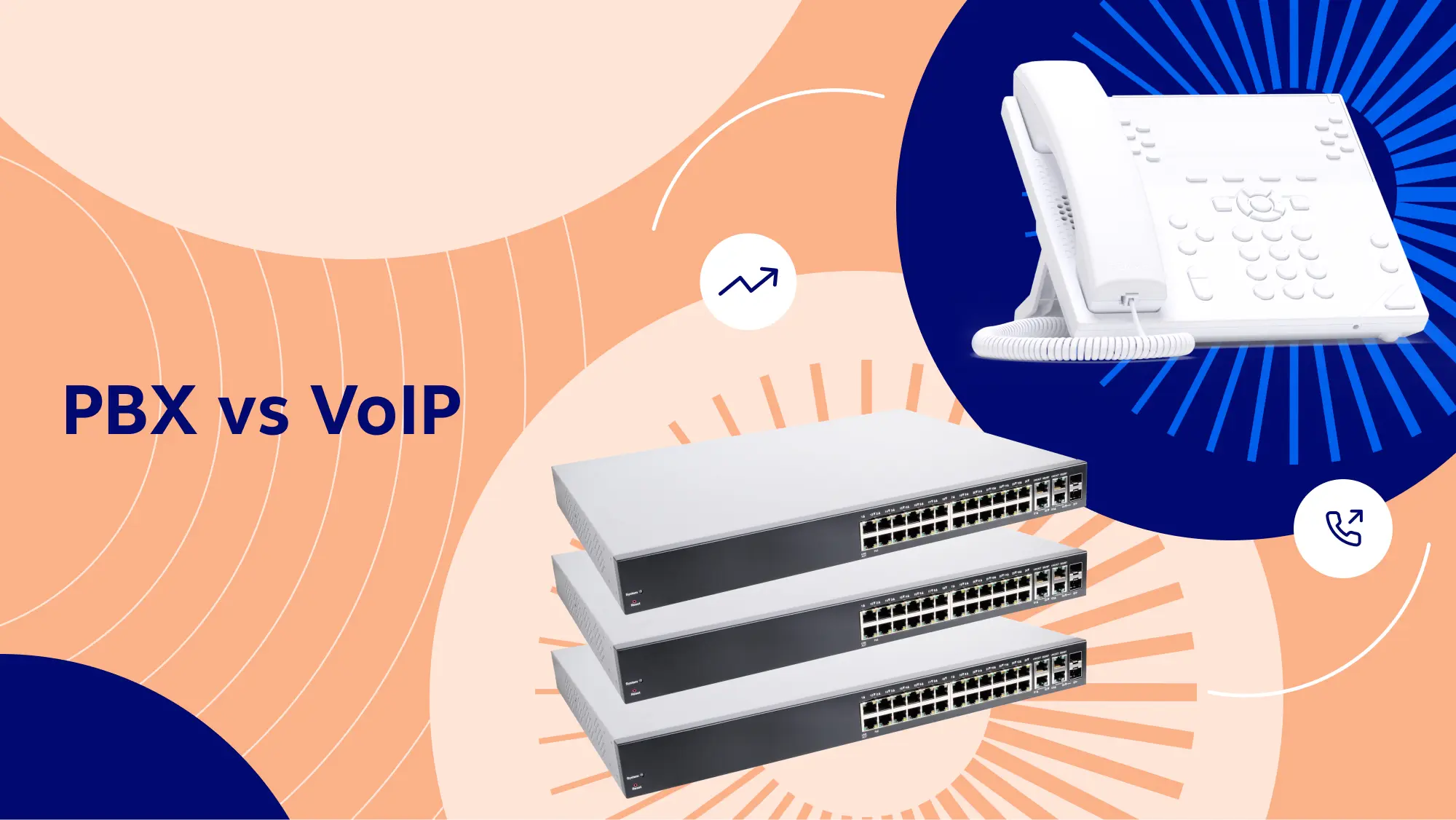
What is PBX?
A PBX system is a private telephone network that businesses use to manage internal and external communications. It allows multiple lines to connect employees and customers, offering features such as call routing, voicemail, and conference calling.
Types of PBX Systems:
- Traditional PBX: Uses landline connections and physical hardware.
- IP PBX: Uses internet-based communication but still relies on on-premises equipment.
- Hosted PBX: Managed by a third-party provider, reducing the need for in-house maintenance.
Pros of PBX Systems:
✔ Reliable and independent of internet connectivity.
✔ Secure and controlled since it's a private system.
✔ Suitable for large enterprises with dedicated IT teams.
Cons of PBX Systems:
✘ Higher initial costs for hardware and installation.
✘ Limited scalability compared to cloud-based solutions.
✘ Requires ongoing maintenance and technical support.
What is VoIP?
VoIP (Voice over Internet Protocol) is a modern communication system that transmits voice calls over the internet instead of traditional phone lines. It converts voice signals into digital data, enabling businesses to make and receive calls from any internet-connected device.
Pros of VoIP Systems:
✔ Lower costs for installation and maintenance.
✔ Scalable and flexible for businesses of all sizes.
✔ Advanced features like video conferencing, auto-attendants, and mobile integration.
Cons of VoIP Systems:
✘ Dependent on stable internet connectivity.
✘ Potential security risks if not properly managed.
✘ Call quality may be affected by network congestion.
PBX vs. VoIP: A Detailed Comparison
| Feature | PBX | VoIP |
|---|---|---|
| Technology | Uses traditional phone lines or IP-based hardware | Uses the internet to transmit voice calls |
| Cost | Higher upfront costs for equipment & installation | Lower setup costs; pay-as-you-go model |
| Scalability | Limited and requires hardware upgrades | Easily scalable with cloud-based solutions |
| Flexibility | Fixed system, requires physical installation | Can be used from any device, anywhere |
| Maintenance | Requires on-site IT support and hardware updates | Managed by VoIP providers with automatic updates |
| Call Quality | Consistent, not dependent on internet speed | Varies based on network stability |
| Security | More secure due to private infrastructure | Requires cybersecurity measures to prevent breaches |
Which Phone System is Right for Your Business?
When to Choose PBX:
- Your business requires a highly secure, private phone system.
- You have an IT team to manage and maintain hardware.
- Your office is in an area with unreliable internet connectivity.
- You prefer a traditional, on-premises solution with dedicated hardware.
When to Choose VoIP:
- Your business needs cost-effective, scalable communication.
- You operate remotely or across multiple locations.
- You need advanced features like video calling, mobile integration, and AI-powered voicemail.
- You prefer a cloud-based system with minimal hardware requirements.
Hybrid Solutions: Combining PBX and VoIP
Some businesses opt for a hybrid phone system, integrating PBX and VoIP to get the best of both worlds. This allows companies to maintain PBX reliability while taking advantage of VoIP's flexibility and cost savings.
Conclusion: Making the Right Choice
Both PBX and VoIP offer unique benefits, but the best option depends on your business size, budget, and communication needs. If you need a traditional, secure system with reliable infrastructure, PBX may be the right choice. However, if you’re looking for a cost-effective, flexible solution with advanced features, VoIP is the future of business communication.
Before making a decision, evaluate your company's needs, IT capabilities, and long-term communication goals. Consulting a business phone system provider can help tailor the perfect solution for your organization.
